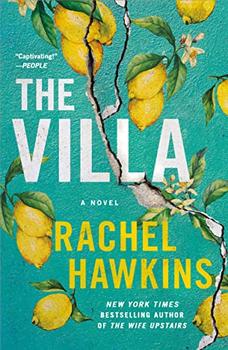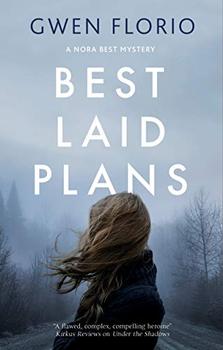Summary | Excerpt | Reading Guide | Reviews | Beyond the book | Read-Alikes | Genres & Themes | Author Bio

Amber has lived in poverty all her life, and she has had enough. Of course, wishing to have money and power doesn't make it so, but Amber isn't one to sit quietly in the background, hoping and praying that someday her prince will come. In fact, she has a very good plan; she has set her sights on the ultra-rich and very handsome Jackson Parrish, and nothing is going to stop her. To succeed, she first has to get rid of Jackson's overly privileged wife Daphne, and that's going to take some doing – especially since their devotion to each other is obvious and everyone knows they have a perfect marriage.
The first thing that struck me about Liv Constantine's The Last Mrs. Parrish (which is actually two sisters using one pen name - see Beyond the Book), is that it initially introduces us to the story's antagonist, Amber, and focuses on her throughout the first half of the novel. So early depictions of the protagonist, Daphne, makes her seem like a minor character. I found this type of structure in a novel fascinating. It pushes readers to immediately love to hate Amber. Not liking a novel's main character might sound like a bad thing; however, one essential part of an author's job is to get readers to have emotional responses to their characters. Usually that's something positive and sympathetic, but if hate is the best option, then why not? Almost automatically, because of how terrible Amber is, we feel bad for Daphne, even before we hear her side of the story. That means that when she does finally appear in the book, we're already primed to take her side, care about and feel sorry for her. If the authors had put Daphne's story first, we might not have thought so well of her so this structure choice made perfect sense.
Combine this structure with a very straightforward, slightly edgy feel to Amber's voice and a more lyrical sound to Daphne's – perhaps the two sisters divvied up these characters between them – and you have everything you need in both literary style and character development. Add to all of that Amber's devious plot to steal away Daphne's husband (with some twists that I cannot mention, since that would be giving away major plot spoilers), and, here too, the authors grab the reader with just the right amount of suspense to turn this into a real psychological thriller, but it is also not overly heavy or dark, making it all the more readable.
The only problem with The Last Mrs. Parrish is that there's a bit too much to the ending. While there are two extremely good twists included in those final few chapters, it just felt like some of the post-climax descriptions were too saccharine. Writers give the advice to "kill your babies" and if the authors had killed one of those twists, and concentrated more on the other one (though I couldn't choose which one), the conclusion would have felt more solid, and more consistent with the rest of the novel. Despite this one drawback, I can certainly recommend The Last Mrs. Parrish and I must give major kudos to the Constantine sisters for writing a book that I enjoyed so much, particularly since it's in a genre I almost never read.
![]() This review was originally published in The BookBrowse Review in November 2017, and has been updated for the
June 2018 edition.
Click here to go to this issue.
This review was originally published in The BookBrowse Review in November 2017, and has been updated for the
June 2018 edition.
Click here to go to this issue.

If you liked The Last Mrs. Parrish, try these:

by Rachel Hawkins
Published 2023
From New York Times bestselling author Rachel Hawkins comes a deliciously wicked gothic suspense, set at an Italian villa with a dark history, for fans of Lucy Foley and Ruth Ware.

by Gwen Florio
Published 2021
In the first of a new mystery series, we meet Nora Best as she flees her old life, cheating husband and all, and takes to the road with an Airstream trailer.
Finishing second in the Olympics gets you silver. Finishing second in politics gets you oblivion.
Click Here to find out who said this, as well as discovering other famous literary quotes!
Your guide toexceptional books
BookBrowse seeks out and recommends the best in contemporary fiction and nonfiction—books that not only engage and entertain but also deepen our understanding of ourselves and the world around us.